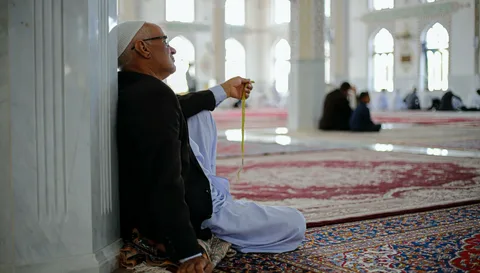
Introduction: A Leader Rooted in Faith
In every Muslim community, the Imam is more than a prayer leader. He is a teacher, counselor, and moral guide whose life reflects the true essence of Islam. His influence extends beyond the mosque, shaping hearts, nurturing character, and strengthening unity among believers.
In today’s world of distractions, uncertainty, and social division, the Imam’s role is more vital than ever. He serves as the bridge between faith and society, guiding Muslims to live Islam meaningfully in their daily lives. His leadership is rooted not in authority, but in service, humility, and compassion.
The Prophet Muhammad ﷺ said:
“The best of your leaders are those whom you love and who love you, who pray for you and you pray for them.” (Muslim)
Authentic leadership in Islam is built on mutual respect, sincerity, and love. An Imam who embodies these values becomes a light source, transforming individuals and strengthening the community.
The Imam’s Spiritual Role: A Beacon of Faith
Meaning
The Imam’s foremost duty is spiritual guidance. Through knowledge of the Qur’an, Sunnah, and Islamic teachings, he helps believers deepen their connection with Allah. His presence reminds the community that faith is not limited to rituals, but extends into every part of life.
An Imam’s sermon or gentle reminder often revives hearts and brings believers closer to the purpose for which they were created, to worship and serve Allah sincerely.
Daily Life Application
A faithful Imam encourages people to apply Islamic principles in daily life — showing kindness at home, integrity in business, patience in hardship, and gratitude in success. His leadership becomes a living reminder that worship is not confined to the mosque; it is reflected in every word and action.
When Muslims observe such leadership, they are reminded that Islam is not a distant concept but a complete and compassionate way of life.
The Imam as a Teacher and Mentor
Meaning
From the earliest days of Islam, mosques have served as centers of learning and enlightenment. The Prophet ﷺ himself taught in the masjid, nurturing generations who carried the light of knowledge across the world. Continuing that prophetic legacy, the Imam plays a vital role as a teacher who spreads wisdom and moral guidance.
An Imam does more than quote verses or rulings; he translates faith into understanding. He helps people embrace Islam intellectually, emotionally, and practically by simplifying complex ideas and connecting them to real-life situations.
Daily Life Application
Through Qur’an study sessions, youth classes, and community programs, Imams foster knowledge that strengthens faith. In modern times, many also reach audiences through online lectures and social media, using technology as a da’wah.
Addressing contemporary issues such as peer pressure, identity struggles, and ethical challenges, an Imam equips the younger generation to stay proud and confident in their faith, proving that Islam remains timeless in its wisdom and relevance.
The Imam as a Counselor and Listener
Meaning
The challenges of modern life often bring emotional strain, family conflict, and inner turmoil. In such moments, the Imam’s counselor and compassionate listener role becomes invaluable. His wisdom, grounded in Qur’anic principles, offers comfort, perspective, and hope to distressed people.
The Prophet ﷺ said:
“The believers, in their mutual kindness, compassion, and sympathy, are just like one body. When one of the limbs suffers, the whole body responds with wakefulness and fever.” (Bukhari, Muslim)
An Imam embodies this compassion, offering empathy and understanding. His guidance helps believers find peace through remembrance of Allah and reliance on divine mercy.
Daily Life Application
When individuals seek advice about family matters, grief, or faith struggles, an Imam provides direction through patience, gentleness, and wisdom. His counsel can heal wounds that words alone cannot.
By reminding others that Allah’s mercy is infinite and that hardship often brings spiritual growth, the Imam helps transform pain into patience and despair into trust. His presence becomes a reflection of Allah’s compassion in the community.
The Imam as a Community Leader
Meaning
Beyond spiritual and personal guidance, the Imam also serves as a leader for the entire community. He unites people of different backgrounds under one banner: Allah’s worship. His mission is to promote justice, kindness, and mutual support among believers.
A faithful Imam does not seek personal recognition or power. His leadership is an act of service, nurturing unity, addressing community needs, and ensuring that the mosque remains a center of peace and cooperation.
Daily Life Application
An Imam often leads initiatives that unite people, such as food drives, charity events, or programs for youth and older people. By promoting teamwork and volunteerism, he strengthens the bonds of brotherhood within the Ummah.
In economic, social, or emotional crises, the Imam’s guidance helps the community respond with compassion and patience. His voice calls for unity over division and empathy over judgment.
The Imam in Modern Times
The modern era has introduced new challenges for spiritual leadership. Muslims today must navigate fast-paced lifestyles, cultural differences, and global influences while staying true to their faith. In this context, the Imam’s role becomes essential for balance and direction.
A modern Imam embraces technology, education, and communication tools to connect with people while maintaining the integrity of Islamic teachings. His khutbahs and community talks address relevant topics, from mental health to family issues and the importance of faith in an ever-changing world.
He leads not only by knowledge but by example. Through humility, patience, and moral consistency, he proves that Islam is compatible with modern life and that faith can thrive anywhere.
Modern Reflection: The Imam’s Role in a Changing World
As societies evolve, the Imam remains a timeless anchor of faith. In a world that values material success and individualism, his message reminds believers that true success lies in service, sincerity, and remembrance of Allah.
The Imam’s presence helps communities stay grounded in their values. His words bring comfort, his leadership brings order, and his example brings hope. In a time where faith is often challenged, the Imam reminds people that Islam continues to offer light, guidance, and peace.
Through his steadfastness, Muslims learn that leadership in Islam is not about authority, it is about compassion, wisdom, and accountability before Allah.
Reflection for the Reader
Every believer can reflect on the importance of the Imam’s presence in their community:
• Do Muslims seek guidance and understanding from their local Imam?
• How often do communities support and appreciate the leaders who serve them?
• Are prayers made for those who dedicate their lives to teaching and guiding others?
• How can individuals embody the same qualities of patience, humility, and sincerity that define a good Imam?
When believers value and support their Imams, they strengthen not only their mosques but the spiritual foundation of their entire community.
A Journey Shared Through Faith
Abdul Jihad Islam’s book, “Practicing Islam in Prison and Society,” highlights the significance of strong spiritual leadership in guiding individuals toward redemption and faith. Through his personal journey, he witnessed how the wisdom and compassion of dedicated Imams provided strength, direction, and comfort in times of hardship.
The book emphasizes that an Imam’s role extends beyond sermons and prayer; it touches lives, rebuilds hearts, and strengthens the Ummah from within. Even in confinement, the influence of faithful leadership can transform despair into hope and isolation into spiritual connection.
This book offers a heartfelt exploration of guidance, unity, and renewal through Islam’s timeless principles for readers seeking to understand how spiritual leaders impact the faith and growth of a community.

